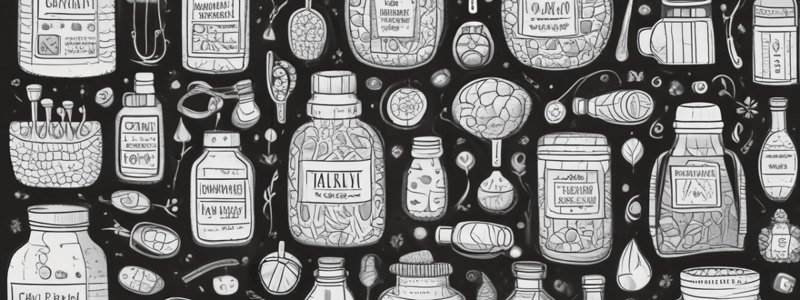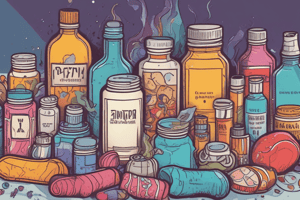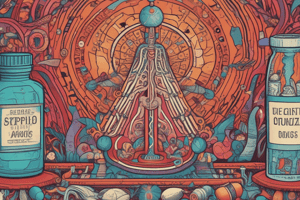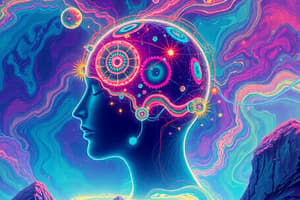Podcast
Questions and Answers
Match the following classes of psychoactive drugs to their primary actions:
Match the following classes of psychoactive drugs to their primary actions:
Stimulants = Block the reuptake of dopamine, norepinephrine, and serotonin Depressants = Reduce activity of the Central Nervous System Opioids = Increase activity in opioid receptor neurons Hallucinogens = Alter sensation and perception
Flashcards are hidden until you start studying
Study Notes
Stimulants
- Operate by blocking reuptake of neurotransmitters: dopamine, norepinephrine, and serotonin.
- Affect the synapses in the central nervous system, resulting in heightened alertness and energy.
Depressants
- Reduce overall activity of the Central Nervous System (CNS).
- Lead to effects such as relaxation, lowered inhibitions, and sedation.
Opioids
- Chemicals that enhance activity at opioid receptor neurons.
- Key effects include euphoria, pain relief (analgesia), slower respiratory rate, and potential side effects like constipation.
- Commonly used for pain management but carry risks of addiction.
Hallucinogens
- Psychoactive substances that significantly alter a person's sensations and perceptions.
- May produce visual or auditory hallucinations and changes in thought processes and emotions.
Studying That Suits You
Use AI to generate personalized quizzes and flashcards to suit your learning preferences.




